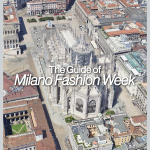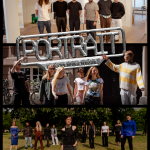
Within the past 25 years, mankind has undergone a number of strides and struggles concerning the devolution and evolution of our existence and intelligence : a part global legalization of same sex marriage; the world’s worst terrorist attacks; our second spacecraft landing on mars; the invention of viagra; the rise of Instagram and other social networks; the invention of memes & the selfie among many others. Throughout this quarter-century of development, of historic and at times catastrophic events, we have also been in the process of birthing a new generation, crafting a new breed of people that we have most recently discovered to be gravely cognizant of their current surroundings made chaotic by the Millennials and Baby Boombers which preceded them.
When people think of Generation Z, oftentimes what comes to mind are the names of groundbreaking activists or millionaire celebrities like Greta Thunberg, Artemisa Xakriabá, Zendaya, Kylie Jenner who are filled with hopes and dreams for a different kind of world. While this may be accurate to some extent, it is inevitable to not address the more solemn side of the cohort. Recent studies have shown that Generation Z has shown a 56% increase in suicide, anxiety and depression rates, making it the generation’s second leading cause of death and revealing that they may be the most at-risk for mental illnesses. So what is it that is driving this generation into this wall of self destructive anxiety? Is it our compulsive reliance on technology ? Or decrease of sexual and substance experimentation ? Or perhaps it may be the concerns of living in a dying world?
For our second instalment of nss magazine’s digital cover, we traverse through the Dark Side of Generation Z, with an editorial shot by Robbie Augspurger we confront the ways in which the generation has been affected in dealing with a potentially critical anxiety. In turn we engage in conversations with local and international medical experts and members of the generation who have handled the issues first hand in an effort to find ways in which to healthily discuss the causes of this mass outbreak, ways in which to identify it and methods of healthily handling it.
Credits
Photography Robbie Augspurger
Styling Ramona Tabita
Styling assistant Giulia Ambrosetti
Set Designer Lorenzo Dispensa
Casting Director Sabrina Mostrangelo
Hair Pier Paolo Lai
Makeup Vanessa Geraci
Special Effects Artist Simone Gammino
Creative Direction nss magazine
Creative Producer Jordan Anderson
Production Coordinator Ali Kiblawi
Production nss factory
The Dark Side of Gen Z - nss magazine Digital Cover N.01
In the second instalment of our digital cover series, we confront the pressing subject of Generation Z's mental health, as we engage in conversation with specialists on how to play our parts in its amelioration.
December 3rd, 2019
According to a new set of recent studies including one conducted by Society for Research in Child Development, the generation of adolescents known as Generation Z is one that is having less sex, doing less drugs and drinking less alcohol as compared to previous generations, and while these may seem like things to applaud, they actually aren’t, as it seems the generation has only fostered forms of technology as new-age drugs which seem to come at an even deadlier cost of heightening rates of suicide, anxiety and depression.
Within the past five years, adolescents in the US between the ages of 15 and 20 have committed suicide at a rate of 17.9 % per 100,000 , the number has only neared this level in 1980 when the HIV/AIDS epidemic broke and it was at an all time high of 18%. However, there has been no threats of infectious diseases on such a large scale on the Western side of the world, so one is forced to ask, what difference does this generation hold to the others?
The most evident answer to the question is that of technology, while Baby Boomers never grew up around much technology, and Millennials were able to witness much of the evolution of technology and social media, this is a generation that does not know life without iPads , Instagram and smart phones. The deep dark web was pretty much gifted to us alongside toy cars and barbie dolls and this has resulted in a calibre of dependency that has never been formed before. Even producers are aware of this and create new day social media and computer interfaces like Tik Tok and macOS High Sierra suited not for a generation in the process of learning technology, but one that is expected to be prodigies postpartum.
However does a reliance on technology necessarily equal to the deterioration of mental health?
According to Generation Z expert Dr Corey Seemiller it doesn’t,
“there is no real strong case [proving] that high levels of screen time lead to depression. It may instead be that those who are depressed are online more. Overall, the impact of technology and social media use on mental health is far more complex than just one factor causing another. They can be powerful and useful portals for young people to connect with each other but it can also be used in ways that are not productive (cyberbullying, spreading rumors etc) or ways that could take away from time being spent creating authentic and healthy connection in life with others in real life. Just like the dangers young people were warned of throughout history with the advent of the automobile, aeroplane, telephone, TV etc, social media & the internet is just another new shiny technology that is alluring to teens and young adults.”
Which would go to say that just like the invention of the automobile, planes etc, it is not the device or the existence of technology itself that is hazardous but rather the system or method in which it is used.
Dr Francesco Rovatti, Psychotherapist at ASST Ovest Milano speaks from his experience locally in Italy and describes Gen Z’s relationship with technology as an overload of stimuli,
“In this digital age we have millions of possibilities, so much to the point where it becomes an overload of stimuli that this generation is not able to effectively process and because of the expectations of today’s society, everything becomes a mask to hide what they may actually be feeling or handling.
When we were younger we had much less possibilities , but we also had much less requests, today’s kids grow up with a great number of possibilities but also a great number of expectations , to do well in school or sports, be pretty, rich or even famous and it’s easy that those more fragile and vulnerable will live in difficulty not knowing how to achieve that level of success which naturally results in a level of anxiety and depression episodes caused by constantly trying to reach these unrealistic goals.”
So what seems to have occurred is that technology and the internet has affected us in a way where from a very young age it has helped to instil levels of goals and expectations that may or may not be the most realistic. A decade ago , industries like fashion was communicating with its audience in a very exclusive kind of way, fast forward to today and everyone is able to give their opinions to brands from the comfort of their bedrooms. Which means we are the ones who are in control of crafting our own toxic expectations, and only very recently has it started to change for the better.
“In a time where judgment is built into our social media platforms and the world can literally “like” or not what you post, it isn’t surprising that we found in our study that Gen Zers have issues with self-confidence and fear of not living up to their own expectations, making mistakes, and just being average,” commented Dr Seemiller.
Further proof of this is a few interviews we conducted with Gen-Zers when we asked they deem to be the main causes for their anxieties:
Although school and work are big drivers of episodes of anxiety and depression in the generation, they are of course not the only ones,
“It’s also important to remember that these young folks are growing up in a time like never before. They were recession babies who are now afraid of not getting a job or being able to pay their bills. They are also experiencing heightened attention and exposure to real-world issues. Carrying the burdens of real life can be heavy…especially when so many believe that they are inheriting a troubled economy and a world devastated by climate change, pollution, and exploitation that they will need to address,” explained Generation Z expert Dr Corey Seemiller.
There have been a number of studies proving and discussing these findings, the terms climate grief and eco-anxiety have been identified as a sources of stress experienced mainly by Generation Z that is resulted from being born into a world that is plagued with the results of climate change. Imagine being bombarded daily with images of the burning Amazon and the melting arctic and being gifted the task of fixing decades worth of damage that you had no part in causing. This form of exam or homework may be the biggest source of anxiety ever known for our generation, living in a world which we are constantly told is ending and having to sit and watch world leaders argue about whether it’s the right time to make changes or not. Research conducted by the American Psychological Association has documented how this has collectively mentally affected us as a people.
Yet although climate change, school , the internet , social media and high expectations are issues that are more pressing than ever, the problem is not only the fact that these obstacles exist and cause anxiety but more so the fact that Generation Z is not well equipped enough to healthily process these anxieties. Although the use of substances like cocaine, meth and alcohol have lessened, the generation seems to have either developed potentially more or equally toxic methods of coping like the use of Xanax, codeine, sex camming, video gaming, cell-phone addictions or not use coping methods at all.
“Having lower levels of risky behaviour can certainly be positive for both health and legal reasons. However, young people haven’t necessarily found other, healthier ways to cope. This is worrisome in that many in this generation need to learn healthy coping behaviours. Simply not engaging in coping doesn’t mean that one doesn’t need to cope,” Dr Seemiller further explained.
When we confronted our subjects on what methods they used in coping with this crippling anxiety we were given a myriad of responses:
The most popular of all coping methods for this generation however, is undoubtedly meme culture. We have developed a custom of using dark humour as a form of coping to raise awareness about issues that many would rather not speak about, including mental illnesses. Memes and similar forms of digital communities provide an open, though not always productive or healthy space to deal with depression and anxiety.
However in order to ensure that the rates of suicide and depression decline , it will take much more than the dark humour of meme culture and will require the effort of the greater society. Dr Seemiller explains,
“one approach is to work towards addressing the issues that are causing anxiety among so many of them - like instituting strong environmental measures and stabilizing the economy by closing salary gaps, paying a living wage, and offering affordable healthcare. The second approach is to help Gen Zers develop their coping skills by providing opportunities for developing meaningful connections with others outside of social media, so they can have a support structure that can be accessible in person.”
Dr Francesco Rovatti , Psychotherapist at ASST Ovest Milano, also noted that issues of mental are much less taboo than previous generations, specifically in Italy,
“things are much less taboo than they were before , but at the same time it’s not so easy. In Lombardy there are many places to go for help with children or teenagers who propose psychological fragilities, but the parents have to also get better at knowing the normal behaviours of their children and spotting irregularities, and because this generation is so open and less resistant to talk about these issues than the previous ones, I also have to say we are very much behind in the various forms of help that what we have to offer them. So that also has to improve.”
In summary, the improvement in the mental health of Generation Z not only depends on the generation itself digging itself out of the metaphorical ruts in which we were born, but also concerns the generations ahead playing their part in stabilizing a world that is not only physically habitable enough for us and generations to come, but one that establishes realistic expectations and healthy boundaries with technology.
It’s also important that as the mainstream media, we remain cautious in how form the narrative around mental health and suicide. Marketing to a generation that is open to conversations surrounding these issues does not mean we have the freedom to speak in whatever manner we’d like but rather that we have to be even more aware of the effects which it may cause and in the light in which we present them and this is something we are still getting used to.
Research published in JAMA Internal Medicine saw a spike in suicide-related Google searches 19 days after the first release of Netflix Series 13 Reasons Why and reported several cases of the series’ narrative of glamorising suicide being triggering for individuals struggling with depression. While on the other hand, HBO series Euphoria arguably sparked a rather more straightforward honest conversation surrounding mental illness, trauma and substance abuse in 2019, which means we have to aim to follow journalistic and creative guidelines in reporting such issues.
Generation Z does not signal towards the end of a road as the alphabetical order might suggest, but rather that we symbolizes the dawn of a new beginning. After all the generation after Z , which we will be tasked to raise is set to be dubbed Generation Alpha, and Generation Z being the most progressive on things like gender identity, climate change and cultural morals could not be better candidates to craft a fresh start. So let’s make efforts in ensuring we’re all in the right state of mind to do so.
If you or someone you know is thinking to hurt yourselves, you’re not alone. Here’s a list of hotlines and online resources that will help:
Samaritans Onlus (Italy)
Tel. 800 8600022 / +390677208911
http://www.samaritansonlus.org/
Samaritans (UK)
Tel: 116123
http://www.samaritans.org























































































